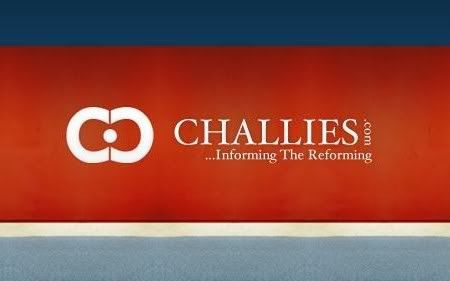 Every now and then I look around the web to see if anyone has written anything that's bypassed me. I've found some good things and some bad in regards to my articles. Some demand more attention then others do and some, due to time constraints, will remain in the backburner until I'm free to devote some time to them. Some I don't feel the need to respond to given that the writer(s) haven't really refuted anything I've put on my blog (or any of the articles I've written for Jim's blog for that matter). Although, I may eventually respond to these as well. Well, I found a response to my article Onesiphorus in Purgatory?, by a poster who calls himself "Mad Dawg." The article itself was submitted by a poster named "Ottofire" on the Free Republic forums. The responses are over a year old, but I registered on the forum and am presently awaiting approval. My intent is to let "Mad Dawg" know of my response here.
Every now and then I look around the web to see if anyone has written anything that's bypassed me. I've found some good things and some bad in regards to my articles. Some demand more attention then others do and some, due to time constraints, will remain in the backburner until I'm free to devote some time to them. Some I don't feel the need to respond to given that the writer(s) haven't really refuted anything I've put on my blog (or any of the articles I've written for Jim's blog for that matter). Although, I may eventually respond to these as well. Well, I found a response to my article Onesiphorus in Purgatory?, by a poster who calls himself "Mad Dawg." The article itself was submitted by a poster named "Ottofire" on the Free Republic forums. The responses are over a year old, but I registered on the forum and am presently awaiting approval. My intent is to let "Mad Dawg" know of my response here.Mad Dawg's words will be in blue blockquote, any citations will be in brown blockquote, and my response will remain in black and standard format....
The first thing to say is that this is sloppy. What exactly does "according to Rome" mean? Is the statement de fide, an opinion, or what? and "the majority of us" is the majority of whom, please? Certainly we'd guess that the majority of those whose final stop is heaven will spend some time in purgatory, but that's not doctrine.
“According to Rome” means according to the teaching of the Roman Catholic Church. I’m sure he is fully capable of understanding that Purgatory is a de fide teaching and, yes, it is understood that the majority of Christians, with the exception of martyrs and saints, WILL be going to purgatory. I never said that the amount of those going there is a “doctrine” but only that this is what is proclaimed by Catholics. I base the latter on my experience as a Catholic, on the dialogues I've had with Catholic clergy and laity and from the Catholic apologists I’ve interacted with.
ALL of those who "endure", as churchmouse puts it, Purgatory, will end up in Heaven. Purgatory is an interval, a way station, a pause, and from the point of view of eternity, almost a triviality. SO I think it's tendentious to call it "quite an oversight."I am only using a word (endure) which has been used by many Catholics in my discussions. I think the word is appropriate considering this is ultimately what those in “purgatory” must do, they must "endure" the temporal punishments, the purgings, while awaiting their release (regardless of how instantaneous or prolonged it may be) to heaven. Mad Dawg trivializes the concept almost to the point of it being just a mere "waiting period" in a sea of infinity but this wasn't always the case. Prior to the Reformation, the emphasis was great on purgatory which was portrayed as a realm to which the souls were subjected to suffering in fire. How Rome portrayed the concept of purgatory historically is downplayed today. Yet, considering that the majority of Christians will go to purgatory, it isn’t a triviality, its impact on Christians cannot be downplayed, thus it speaks volumes that the “state/realm/place” where most Christians go doesn’t muster a single clear passage in Scripture. Instead, we are told that there are “implications” of the doctrine within it, but there is no evidence that these "implications" were interpreted as such by the early church? As medieval scholar Jacques Le Goff proves in his book The Birth of Purgatory, the concept didn't appear in the writings of the church until Clement of Alexandria and Origen. They were those who planted the seeds that would lead to a full-blown doctrine several centuries later. Thus, there is no purgatory in which to call an “…interval, a way station, a pause…” or even a “triviality.”
As a matter of fact, we do not "Realize" that,l and that statement is indicative of the lack of care which characterizes this attempt at a refutation. What churchmouse can reasonably say is that we have no surviving record from before Origen and Clement of "afterlife purgatorial thought". He cannot conclude from that that "there was nothing which even remotely resembled ...." He does not know. (or if He does know, he doesn't show us how he knows.
Using the same logic, the absence of any “surviving record” can mean there was no purgatory to teach. Yet, there are other ways of gleaning that no such concept was being taught in the early church. Not only is there no evidence of it being taught prior to Clement of Alexandria and Origen, but even even Augustine regarded it to be a theory. The question arises: How does one theorize that which is claimed to have been taught historically by the church? Either it was taught or it wasn’t and there would be no need for “theories” if it was truly a teaching of the church. In light of this, Mad Dawg's appeal to silence really doesn’t make much sense. And, yet there are other ways to show that the church didn't teach purgatory, but we'll get to this in a bit.
Succumbing to the temptation to present conjecture as known and demonstrated fact is easy and hard to avoid. In this case it casts doubt on the reliability of the writer.
As I have shown, it is hardly conjecture and CAN be derived from the history of the church. Rather, it is completely illogical to assume that a belief in a purgatory was the norm when there isn't any evidence of even the "recognition" of the concept. Again, why claim it as an Apostolic teaching when these same men aren't aware of such a teaching in the church and are left to speculate it? If purgatory were truly a teaching of the church then WHAT is there to speculate. It seems Mad Dawg's attempt to cast “doubt” isn’t grounded considering he is the one who assents to purgatory, yet doesn't provide any evidence that the church truly taught the concept.
And that doubt is justified, since we find Tertullian writing in the early 200's about 'sacrifices' for the dead being a custom of Christians. I think that would count as "before Origen" and as remotely resembling.Tertullian doesn’t justify the concept. Le Goff clearly proves that Tertullian held no concept of purgatory in his eschatology. Tertullian believed in the concept of refrigerium (see the link below) which is much like the Orthodox. He believed in an intermediate place (Abraham’s Bosom and the hell of the damned of Luke 16) where the dead enjoy a “foretaste” of their eternal destiny, the righteous in Abraham's Bosom and the wicked in the hell of the damned. There is no comparison. For further evidence of what Tertullian believed, see my blog article here: Purgatory and the earliest Fathers
I wonder what churchmouse thinks of the doctrine of the Trinity and and its mention or lack thereof in the early days.
You know, I’ve always viewed this as a red herring. I don’t need the word “Trinity” present, front and center, to validate what Scripture teaches regarding the Godhead. I view the Trinity as a logical extension of Scripture. The "early days"? What did the Fathers see in the "early days"? Did they appeal to a longstanding “tradition” in the church regarding the Trinity? Or did they appeal to what I use—Scripture! For example, Augustine stated:
"For we behold and see as it were in a divine spectacle exhibited to us, the notice of our God in Trinity, conveyed to us at the river Jordan. For when Jesus came and was baptized by John, the Lord by His servant (and this He did for an example of humility; for He showeth that in this same humility is righteousness fulfilled, when as John said to Him, 'I have need to be baptized of Thee, and comest Thou to me?' He answered, 'Suffer it to be so now, that all righteousness may be fulfilled'), when He was baptized then, the heavens were opened, and the Holy Spirit came down upon Him in the form of a Dove: and then a Voice from on high followed, 'This is My beloved Son, in whom I am well pleased.' Here then we have the Trinity in a certain sort distinguished. The Father in the Voice,-the Son in the Man,-the Holy Spirit in the Dove. It was only needful just to mention this, for most obvious is it to see. FOR
THE NOTICE OF THE TRINITY IS HERE CONVEYED TO US PLAINLY AND WITHOUT LEAVING ROOM FOR DOUBT AND HESITATION. For the Lord Christ Himself coming in the form of a servant to John, is doubtlessly the
Son: for it cannot be said that it was the Father, or the Holy Spirit. 'Jesus,' it is said, 'cometh;' that is, the Son of God. And who hath any doubt about the Dove? or who saith, 'What is the Dove?' when the Gospel itself most plainly testifieth, 'The Holy Spirit descended upon Him in the form of a dove.' And in like manner as to that voice there can be no doubt that it is the Father's, when He saith, 'Thou art My Son.' THUS THEN WE HAVE THE TRINITY DISTINGUISHED." (Sermons on Selected Lessons of the New Testament, 2:1)
And what about his mentor Ambrose who stated...
""God, then, is One, without violation of the majesty of the eternal Trinity, as is declared in the instance set before us. And not in that place alone do we see the Trinity expressed in the Name of the Godhead; but both in many places, as we have said also above, and especially in the epistles which the Apostle wrote to the Thessalonians, he most clearly set forth the Godhead and sovereignty of the Father, the Son, and the Holy Spirit....But if you require the plain statement of the words in which Scripture has spoken of the Spirit as Lord, it cannot have escaped you that it is written: 'Now the Lord is the Spirit.' Which the course of the whole passage shows to have been certainly said of the Holy Spirit....So he not only called the Spirit Lord, but also added: 'But where the Spirit of the Lord is, there is liberty. So we all with unveiled face, reflecting the glory of the Lord, are formed anew into the same image from glory to glory, as from the Lord the Spirit;' that is, we who have been before converted to the Lord, so as by spiritual understanding to see the glory of the Lord, as it were, in the mirror of the Scriptures, are now being transformed from that glory which converted us to the Lord, to the heavenly glory." - Ambrose (On the Holy Spirit, 3:14:94, 3:14:101-102)
And Basil certainly wouldn't agree that Scripture is unclear on the matter...
And then there is Gregory of Nyssa who said..."But all who maintain that either Son or Spirit is a creature, or absolutely reduce the Spirit to ministerial and servile rank, are far removed from the truth. Flee their communion. Turn away from their teaching, They are destructive to souls. If ever the Lord grant us to meet, I will discourse to you further concerning the faith, to the end that you may perceive at once the power of the truth and the rottenness of heresy by Scriptural proof." (Letter 105)
"For that there is a Word of God, and a Spirit of God, powers essentially subsisting, both creative of whatever has come into being, and comprehensive of things that exist, is shown in the clearest light out of the Divinely-inspired Scriptures." (The Great Catechism, 4)
And Hilary of Potiers claimed that he knew of the Trinity through his study of Scripture before he heard the Nicene Creed (forgive me if the Greek fonts don't translate)...
"I call the God of heaven and earth to witness, that when I had heard neither word, my belief was always such that I should have interpreted o0moiou/sion by o0moou/sion. That is, I believed that nothing could be similar according to nature unless it was of the same nature. Though long ago regenerate in baptism, and for some time a bishop, I never heard of the Nicene creed until I was going into exile, but the Gospels and Epistles suggested to me the meaning of o0moou/sion and o0moiou/sion." (On the Councils, or the Faith of the Easterns,Overall, I'm in good company. I see the Trinity in Scripture without the need for councils, but cannot derive a purgatory in the same way.
91)
Excuse typos, etc. In haste here ... If I asked for “proof from tradition” would Mad Dawg be able to produce purgatory for me? And, ironically, he demeans the Protestant rule of faith and parallels his view with the Orthodox, but regardless of Scripture, tradition, or the authority of the church the Orthodox hold to no such doctrine and yet, claim the same antiquity as Rome. Why is it that the Orthodox share the same history, yet completely deny purgatory? How can one church claim that it was an apostolic teaching while the other denies it was ever taught, yet both claim to have received their teachings from the Apostles? And we are talking about a church that split with the West in the early 11th century? This implies that there was no real purgatorial view in the West until after the schism and none in the East? I think the answer is obvious folks—there was no such teaching in the church and the concept arose later through the musings of two Greek church fathers which would eventually lead to a full-blown belief in purgatory for the West.But I guess it needs to be said yet
again that the role of "proof from Scripture" is very different in Orthodoxy and
Catholicism from what it is in much of Protestantism.
































1 comment:
ineterestering
Post a Comment